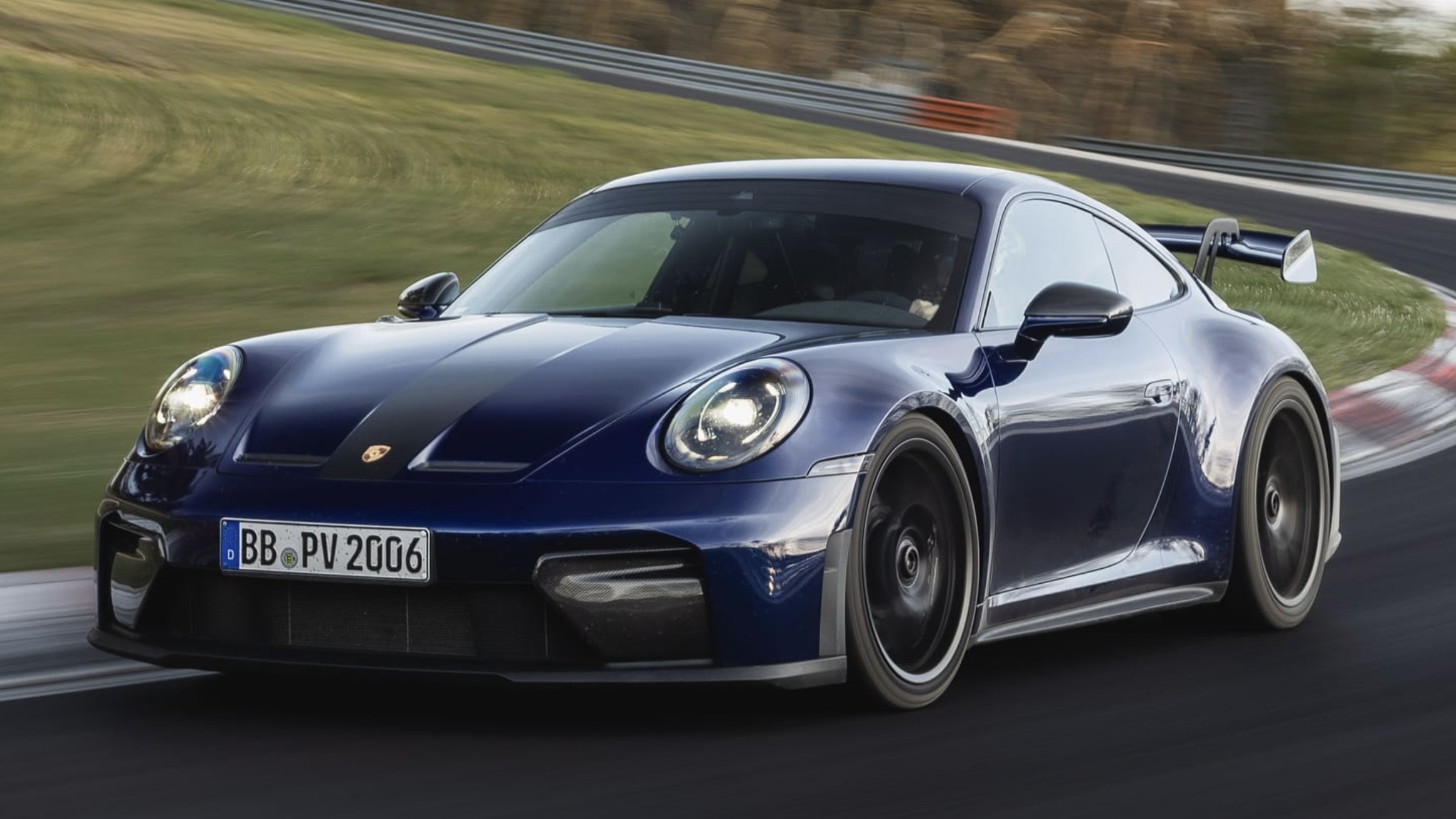In a feat that’s bound to make driving purists grin like lunatics, Porsche has just smashed the Nürburgring lap record for a road car with a manual gearbox. Clocking in at a blistering 6 minutes 56.294 seconds around the legendary 20.8 km Nordschleife, the updated 992.2-generation 911 GT3 has officially become the fastest stick-shift production car to ever lap the ‘Green Hell’.
Behind the wheel was Porsche test driver Jörg Bergmeister, who wrangled every last ounce of performance from the car—clutch, gearstick, and all. The car was fitted with the Weissach package and Michelin Pilot Sport Cup 2 R tyres, and the lap was run in near-perfect conditions: 27°C and sunny skies. Clearly, no excuses necessary.
This new lap time obliterates the previous manual benchmark, set by a Dodge Viper ACR back in 2017, by nearly 10 seconds. And perhaps most jaw-droppingly, Bergmeister’s run even bested the lap time of the previous-generation 992.1 GT3 equipped with Porsche’s lightning-quick PDK dual-clutch automatic, proving that flesh, bone, and a properly sorted gearbox can still outshine silicon and hydraulics.
According to Porsche’s GT division boss, Andreas Preuninger, demand for manual GT3s is steadily growing—a rare trend in today’s market where auto-only supercars are fast becoming the norm. “More and more 911 GT3 customers are choosing the six-speed manual transmission,” he confirmed.
Mechanically, the new GT3 benefits from several subtle but effective tweaks. Lessons learned from the GT3 RS have made the chassis more composed over kerbs and imperfections, while a shorter final drive ratio improves throttle response and keeps the high-revving flat-six in its sweet spot more often.
For Bergmeister, it wasn’t just about the time. “Even though I might’ve gone slightly quicker with the 7-speed PDK, doing the lap with the manual made it all the more thrilling,” he said after the record-breaking run. Which is about as Porsche as it gets: a faster car is nice, but a car that feels fast—while demanding skill—is better.
Manuals may be dying elsewhere, but in Stuttgart, they’re still very much alive—and now, faster than ever.
